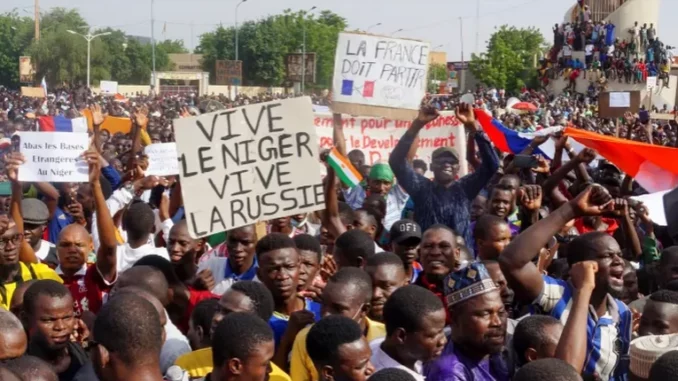
The United States Institute of Peace (USIP) has urged the Economic Community of West African States (ECOWAS) to go ahead with its planned use of force to dislodge the coupists in the Republic of Niger.
Dr Chris Kwaja said this in a virtual news conference on Friday in Abuja.
“We’ve seen the communique issued by ECOWAS a few days ago to the coupist in Niger, telling them to return the president and have given an ultimatum.
“So we are waiting to see what ECOWAS will do at the end of the ultimatum and I think if ECOWAS is able to garner the political muscles to bite hard at this time.
“Then it will be sending a very strong signal to whoever is outside the country that is supporting and masterminding what we are seeing,” he said.
Kwaja said that the activities of mercenaries in the West African region was not a good sign for the region, adding that by design mercenaries were profit makers.
“They are very active in the regions where there are natural resources and would continue to perpetuate conflicts and instability to justify why they should continue their activities wherever they are.
“The ECOWAS communique that was released drew attention to the fact that the region does not welcome private military and security contractors.
“But unfortunately, we don’t have a regional framework for dealing with that and that is a major gap.
“The International communities will be celebrating 50 years of the enactment of the International Committee on Mercenaries towards the end of the year and Africa has been the theater of mercenaries activities,” he said.
Kwaja said that where such framework was not in place the region would remain unstable and be constantly drown back to the 90’s.
He said that the region would be seen as fragile and mercenaries would continue to take advantage of it to make profits at the expense of the lives of Africans.
This, he said would give room for jihadist groups and other sensational groups to invade the region which was a major danger sign for countries in the region,” he said.